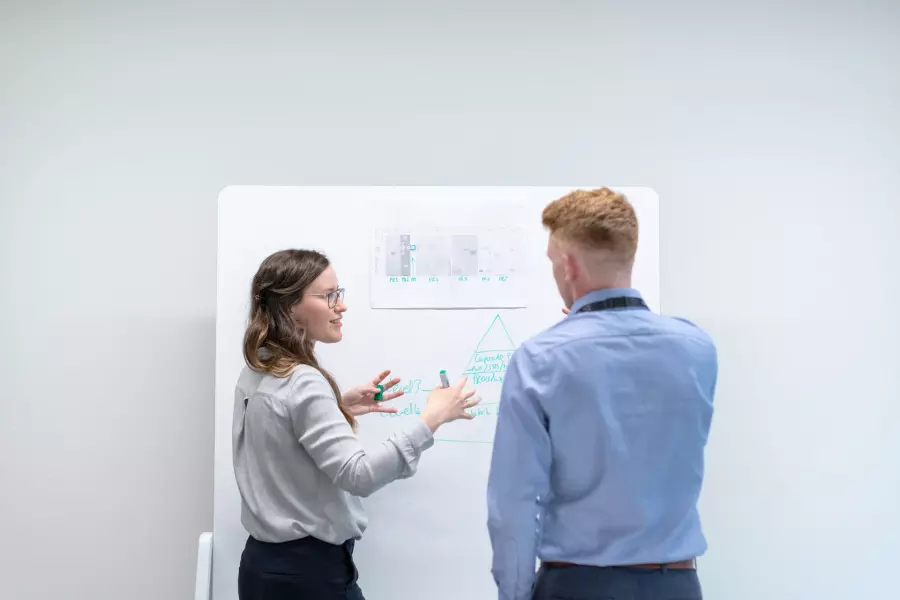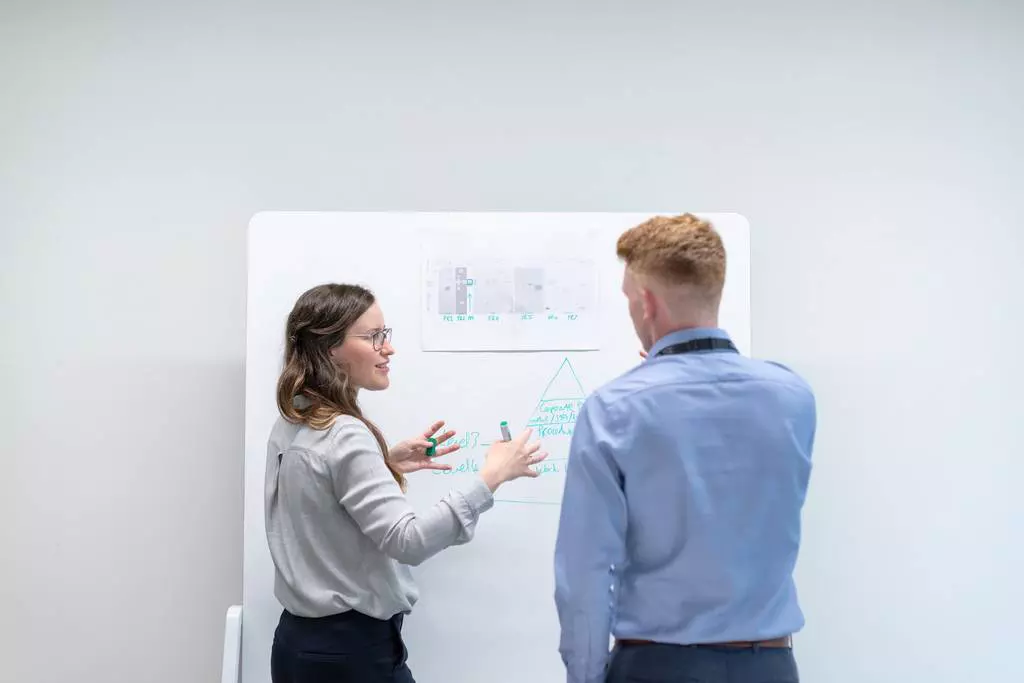
Technologické centrum Praha sumarizovalo reakci českých národních kontaktních míst na střednědobé hodnocení programu Horizont Evropa, ve kterém shrnuje získané poznatky z dosavadních výzev programu. Zájemci z řad veřejnosti se ale také mohou účastnit aktuálně otevřené konzultace k minulosti, současnosti a budoucnosti rámcových programů EU na podporu výzkumu a inovací v období 2014 - 2027.

Czech National Contact Points (NCPs) welcome the “Public consultation on the past, present and future of the European Research & Innovation Framework programmes 2014-2027” held by the European Commission (EC). NCPs appreciate the EC's untiring effort to continuous improvement of the framework programmes and related processes. Observations and proposals for further improvement based on the experience of the daily work of Czech NCPs are outlined below.
IT Tools
- IT tools (Funding & Tenders Portal, FTOP) are user-friendly and significantly reduce the administrative burden. The EC should continue with this practice and continuous improvement. Further consultation with stakeholders and NCPs is welcomed and supported.
Documents, Guidance, and Rules
- Model Grant Agreement (MGA): the new corporate approach applying to all EU funding programmes is welcomed and should be supported in the future. Corporate legal and guidance documents significantly harmonize the rules and their consistent interpretation. Moreover, it results in the simplified administration of EU projects. At the same time, it becomes a challenge to communicate the differences between the programmes clearly and to avoid delays in the publication of documents due to the complex processes of their adoption. The EC should start addressing these challenges.
- The EC could consider pre-publication of draft work programmes (especially in the case of a short time before the deadline or coinciding with the holidays). It would be preferable for documents to reach all stakeholders directly from the EC rather than leak to just anyone through informal channels.
- Guidance documents should be provided as soon as possible. Even after two years of the program implementation, the complete Annotated MGA is not available. This is inexcusable and contributes to the distrust of the program, decrease in transparency, and legal uncertainty of participants. Publication of all guidance documents should be adequately and on time communicated to the stakeholders and NCPs.
- The rules for the eligibility of personal costs are still very complex. The lack of guidance and interpretation of the rules is disturbing and leads to legal uncertainty for beneficiaries. Tailormade national awareness-raising events about project-based remuneration and its application in practice would be welcomed. Furthermore, EC Project Officers and auditors should be more knowledgeable and trained on this topic and specificities in different countries.
- The Indicative Audit Programme is a highly valued document and should be published for HE as soon as possible. Auditors should better plan and communicate the timing of the audit. Audit notifications sent during holidays (i.e., in December and August) are not appropriate. Audit documentation should be improved (e.g., Annex III to the Letter of Announcement should be better adapted for project-based remuneration).
- NCPs would welcome more flexible communication channels with the EC other than RES to assist participants effectively (e.g., e-mail comunication - see best practices in MSCA).
Evaluation
- The level of detail and quality of the information provided in the Evaluation Summary Reports (ERS) is usually very good. At the same time, it seems that in some areas ESRs offer less and less information. Streamlining the level and quality of ESRs should be continued. Detailed feedback is appreciated, especially in mono-beneficiary projects and lower-rated projects.
- More detailed explanations and better communication of the principles and rules for applying blind evaluation would be welcomed.
- Applicants welcome the rebuttal process and hope their comments will be considered more in future evaluations. More detailed instructions and timing outside of holidays would also be welcomed.
Grant Agreement Preparation
- The no-negotiation principle certainly speeds up the process of the grant agreement preparation; however, it is sometimes misinterpreted and applied confusingly in some cases (e.g., budget cuts in ERC and lump sum projects, cuts in the number of team members in ERC, request on the decrease of deliverables). Therefore, a better explanation of the rules of the no-negotiation principle and exceptions in guidance documents would be welcomed.
MSCA
- The effort of the EC to continuously review the effectiveness of the existing modus operandi of long-lasting and tried-and-tested programmes such as MSCA is highly appreciated. The recently introduced extension of the possible duration of MSCA Doctoral Networks – Joint Doctorates projects allowing 4-year fellowships, thus covering the whole length of doctoral studies in many EU countries, is an excellent example of this approach. However, it would be welcomed to keep this attitude consistent across MSCA Doctoral Networks schemes and make it possible to prolong the duration of these projects also for other subtypes.
- We highly appreciate and value the communication channels (e-mail addresses for individual MSCA schemes) REA established for NCPs and the quality and timing of responses provided. We believe this approach could be an example for other areas of the programme (e.g., widening, legal and financial).
EIC
- We welcome the instruments supporting innovations. However, in order to exploit their full potential, we believe that further improvements are necessary for the following areas: delays in prefinancing provided to the companies, the complexity of the AI tool, quality of the ESRs, feedback provided to the evaluators on the quality and relevance of their reports, time the experts have for the evaluation (given the scope of the full application).
EIT
- The stakeholders accept the recent EIT activities and initiatives well. It is welcomed that since the beginning of HE, the rules of participation have been applied to EIT, too. This is a critical and positive step forward, as there was a lot of confusion and misunderstanding in the past. However, improvement at the level of EIT KICs is still needed, especially in the implementation phase of the projects (e.g., reporting, requested documents, etc.). Furthermore, the terminology used in EIT KICs calls should be better aligned with HE calls.
- The overall EIT communication to the broader public has much improved, though more effort is needed, especially concerning the EIT cross-KIC initiatives and activities.
- The EIT Regional Innovation Scheme (RIS) is an essential tool and has already brought several positive results. However, the performance of EIT RIS Hubs differs from country to country. In this sense, the new EIT RIS Hubs minimum standards and guiding principles document for 2023-2025 is a positive step forward.
Widening
- Twinning, Teaming, and ERA Chairs remain essential and valuable instruments for Widening countries and are well accepted by the applicants.
- The Hop-on Facility has raised great expectations within the research community in Widening countries. Unfortunately, these expectations were not fully met in the 2022 first cut-off as the number of eligible projects was very low. The Hop-on instrument surely needs improvements, e.g., remove the projects that succeeded in the call from the list of eligible projects, inform the coordinators of the eligible project in more detail that they are on the list or change the eligibility condition of no Widening partner to no or one.
- The EC should carefully assess ERA Talents and the potential misunderstandings of the call conditions from the applicants' side should be considered when amending the call text 2024.
- The EC should better communicate specific conditions of the Widening instruments such as the eligibility of research and innovation costs in the budget planning and reporting. FAQs offer critical guidance to the applicants. Unfortunately, the FAQs for Widening instruments are in most cases missing on the FTOP call page or are uploaded just a few days before the call deadline.
Lump Sum
- The idea of simplified forms of funding is supported, especially lump sum funding. It can significantly contribute to the concentration on the research outputs and decrease administrative burdens. Unique lump sum website, Commission communication activities (guides, events, etc.), and the pursuit of continuous improvement are welcomed. At the same time, information for evaluators in the Dashboard concerning personnel costs in different countries/types of organizations should be handled with caution (considering the historical and future data and specifics of each institution and researcher). Furthermore, the involvement of evaluators with expertise not only in relevant science fields but also in project management and finance seems important for lump sum projects. The EC should ensure this and try to attract more people with this expertise to register in the evaluators' database. At the same time, scientific excellence should remain at the center of the evaluators' attention (budget discussions should not dominate the evaluation).
Gender
- Gender equality plans (GAP) are a well-designed instrument, and we see positive changes in Czech institutions implementing them. However, we recommend timely communication (preferably at least two years in advance) of any extension of these requirements to businesses, as preparation and approval of a GAP in a large corporation is time-consuming.
Cascade Funding
- We appreciate that a new IT tool was integrated into the FTOP to make the cascade funding calls accessible in one place. However, despite the tool's existence, the cascade funding calls are not always transparently published at the FTOP and are still challenging to find for potential applicants. Therefore, we strongly advise undertaking steps to improve the visibility of cascade funding calls to potential applicants.
- In the context of the rising number of cascade funding calls, we also advise EC to organize more information and awareness-raising events on the EU that would explain the cascade funding to beneficiaries and cascade funding recipients and enable the exchange of experience and lessons learned. In addition, guidance documents with best practice examples are missing and would be appreciated.
Prizes and Awards
- Prizes and awards are tools that bring visibility to the most successful institutions and the bestperforming projects and, as such, are welcomed. The conditions of prizes and awards differ a lot; therefore, a contact person at the EC should be indicated on the relevant call page.
- In some cases, short specific videos from applicants are requested; it is not evident the evaluators will assess these.
- The application forms (templates) should be adapted and revised adequately by the EC, as in some cases, it is very confusing for the applicants what they should fill in or not (e.g., part 2 of the template OTHER). The information on prizes and awards should be more transparent and updated on time, (e.g., if the prize has not been awarded in a specific year, this should be published on the special EC award page).
Zdroj: Technologické centrum Praha
- Autor článku: ne









































